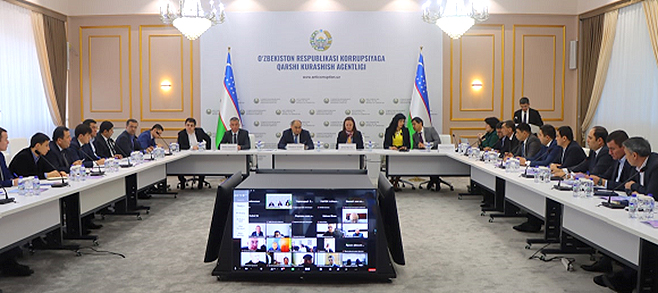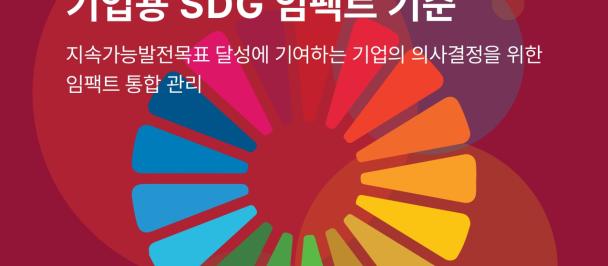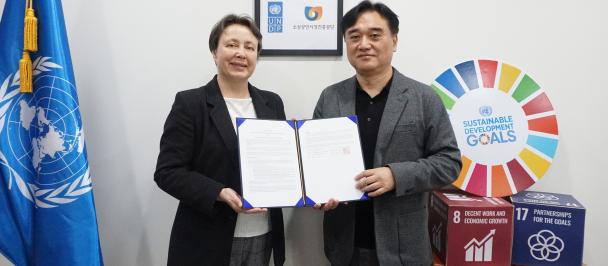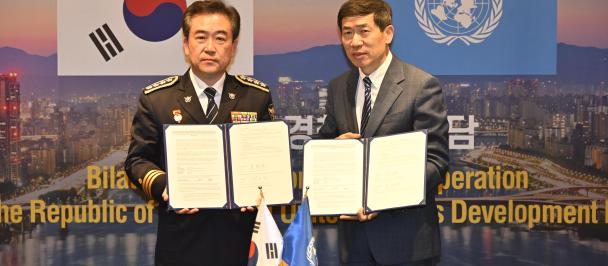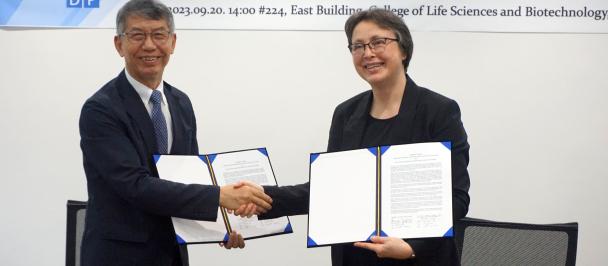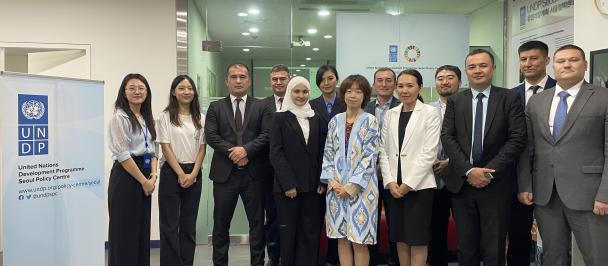On 28-29 March 2022, the Anti-Corruption Agency of the Republic of Uzbekistan and UNDP jointly organized an extensive two-day training seminar for 300+ integrity officers from more than 100 organizations. The training covered the issue of anti-corruption measures in government agencies and overviewed the new ‘E-antikor.uz’ platform.
E-antikor.uz is the Uzbek version of the Anti-Corruption Initiative Assessment (AIA) of the Anti-Corruption & Civil Rights Commission (ACRC) of the Republic of Korea. ACRC annually conducts AIA on all public organizations to monitor and evaluate anti-corruption activities with systematic criteria and indicators. So far, AIA has successfully promoted integrity within the public sector by providing clear, periodic guidance and supporting capacity-building on corruption prevention.
With the support of UNDP Seoul Policy Centre (USPC), UNDP Uzbekistan launched a project in 2018 to support Uzbekistan’s institutionalization of an AIA-like mechanism. As part of this initiative, a high-level webinar was organized on 11 March 2019 by ACRC, USPC, UNDP Uzbekistan Country Office, General Prosecutor’s Office (GPO) of Uzbekistan, and the Uzbekistan Ministry of Justice (MoJ). A study mission to Korea ensued on 3-5 September 2019, aiming to equip Uzbek officials with the technical knowledge and policy insights from Korea’s AIA model. On 6 November 2020, the second high-level webinar was held to introduce AIA to the newly established Anti-Corruption Agency of Uzbekistan.
This resulted in the President’s issuance of Decree No. 81 on 12 January 2022 on the “implementation of a rating system for assessing the effectiveness of anti-corruption measures in government agencies, including local authorities.” The Decree provided a solid legal and organizational framework for the implementation of an AIA-like mechanism in Uzbekistan. From April 2022, Uzbekistan plans to test the AIA-inspired anti-corruption compliance system in 26 state bodies. The government aims to further expand the application of this system to 100+ institutions from July 2022, and ultimately to the entire system of state bodies in the near future.
As part of the training, Mr. Jungoh Son, Anti-Corruption Policy Advisor and ACRC secondee to UNDP, lectured on how the institutions should prepare and implement anti-corruption activities for the monitoring and evaluation process. Mr. Son also highlighted how the anti-corruption agency should design the assessment process and properly guide the target organizations. The event concluded with a presentation of the electronic anti-corruption monitoring platform of E-antikor.uz which was officially launched with a video and a text guide for users.
* UNDP Seoul Policy Centre (USPC) shares Korea’s tested-and-proven policy tools with other countries through SDG Partnerships. SDG Partnerships provide a combination of support, including partnership development with Korean institutions, seed funding, technical assistance, and policy advisory services. It utilizes UNDP’s global policy network of country offices and the policy expertise and know-how of partner organizations such as ACRC.

 Locations
Locations